- Home
- Stephenie Meyer
The Twilight Saga Collection Page 3
The Twilight Saga Collection Read online
Page 3
When we entered the classroom, Angela went to sit at a black-topped lab table exactly like the ones I was used to. She already had a neighbor. In fact, all the tables were filled but one. Next to the center aisle, I recognized Edward Cullen by his unusual hair, sitting next to that single open seat.
As I walked down the aisle to introduce myself to the teacher and get my slip signed, I was watching him surreptitiously. Just as I passed, he suddenly went rigid in his seat. He stared at me again, meeting my eyes with the strangest expression on his face — it was hostile, furious. I looked away quickly, shocked, going red again. I stumbled over a book in the walkway and had to catch myself on the edge of a table. The girl sitting there giggled.
I’d noticed that his eyes were black — coal black.
Mr. Banner signed my slip and handed me a book with no nonsense about introductions. I could tell we were going to get along. Of course, he had no choice but to send me to the one open seat in the middle of the room. I kept my eyes down as I went to sit by him, bewildered by the antagonistic stare he’d given me.
I didn’t look up as I set my book on the table and took my seat, but I saw his posture change from the corner of my eye. He was leaning away from me, sitting on the extreme edge of his chair and averting his face like he smelled something bad. Inconspicuously, I sniffed my hair. It smelled like strawberries, the scent of my favorite shampoo. It seemed an innocent enough odor. I let my hair fall over my right shoulder, making a dark curtain between us, and tried to pay attention to the teacher.
Unfortunately the lecture was on cellular anatomy, something I’d already studied. I took notes carefully anyway, always looking down.
I couldn’t stop myself from peeking occasionally through the screen of my hair at the strange boy next to me. During the whole class, he never relaxed his stiff position on the edge of his chair, sitting as far from me as possible. I could see his hand on his left leg was clenched into a fist, tendons standing out under his pale skin. This, too, he never relaxed. He had the long sleeves of his white shirt pushed up to his elbows, and his forearm was surprisingly hard and muscular beneath his light skin. He wasn’t nearly as slight as he’d looked next to his burly brother.
The class seemed to drag on longer than the others. Was it because the day was finally coming to a close, or because I was waiting for his tight fist to loosen? It never did; he continued to sit so still it looked like he wasn’t breathing. What was wrong with him? Was this his normal behavior? I questioned my judgment on Jessica’s bitterness at lunch today. Maybe she was not as resentful as I’d thought.
It couldn’t have anything to do with me. He didn’t know me from Eve.
I peeked up at him one more time, and regretted it. He was glaring down at me again, his black eyes full of revulsion. As I flinched away from him, shrinking against my chair, the phrase if looks could kill suddenly ran through my mind.
At that moment, the bell rang loudly, making me jump, and Edward Cullen was out of his seat. Fluidly he rose — he was much taller than I’d thought — his back to me, and he was out the door before anyone else was out of their seat.
I sat frozen in my seat, staring blankly after him. He was so mean. It wasn’t fair. I began gathering up my things slowly, trying to block the anger that filled me, for fear my eyes would tear up. For some reason, my temper was hardwired to my tear ducts. I usually cried when I was angry, a humiliating tendency.
“Aren’t you Isabella Swan?” a male voice asked.
I looked up to see a cute, baby-faced boy, his pale blond hair carefully gelled into orderly spikes, smiling at me in a friendly way. He obviously didn’t think I smelled bad.
“Bella,” I corrected him, with a smile.
“I’m Mike.”
“Hi, Mike.”
“Do you need any help finding your next class?”
“I’m headed to the gym, actually. I think I can find it.”
“That’s my next class, too.” He seemed thrilled, though it wasn’t that big of a coincidence in a school this small.
We walked to class together; he was a chatterer — he supplied most of the conversation, which made it easy for me. He’d lived in California till he was ten, so he knew how I felt about the sun. It turned out he was in my English class also. He was the nicest person I’d met today.
But as we were entering the gym, he asked, “So, did you stab Edward Cullen with a pencil or what? I’ve never seen him act like that.”
I cringed. So I wasn’t the only one who had noticed. And, apparently, that wasn’t Edward Cullen’s usual behavior. I decided to play dumb.
“Was that the boy I sat next to in Biology?” I asked artlessly.
“Yes,” he said. “He looked like he was in pain or something.”
“I don’t know,” I responded. “I never spoke to him.”
“He’s a weird guy.” Mike lingered by me instead of heading to the dressing room. “If I were lucky enough to sit by you, I would have talked to you.”
I smiled at him before walking through the girls’ locker room door. He was friendly and clearly admiring. But it wasn’t enough to ease my irritation.
The Gym teacher, Coach Clapp, found me a uniform but didn’t make me dress down for today’s class. At home, only two years of P.E. were required. Here, P.E. was mandatory all four years. Forks was literally my personal hell on Earth.
I watched four volleyball games running simultaneously. Remembering how many injuries I had sustained — and inflicted — playing volleyball, I felt faintly nauseated.
The final bell rang at last. I walked slowly to the office to return my paperwork. The rain had drifted away, but the wind was strong, and colder. I wrapped my arms around myself.
When I walked into the warm office, I almost turned around and walked back out.
Edward Cullen stood at the desk in front of me. I recognized again that tousled bronze hair. He didn’t appear to notice the sound of my entrance. I stood pressed against the back wall, waiting for the receptionist to be free.
He was arguing with her in a low, attractive voice. I quickly picked up the gist of the argument. He was trying to trade from sixth-hour Biology to another time — any other time.
I just couldn’t believe that this was about me. It had to be something else, something that happened before I entered the Biology room. The look on his face must have been about another aggravation entirely. It was impossible that this stranger could take such a sudden, intense dislike to me.
The door opened again, and the cold wind suddenly gusted through the room, rustling the papers on the desk, swirling my hair around my face. The girl who came in merely stepped to the desk, placed a note in the wire basket, and walked out again. But Edward Cullen’s back stiffened, and he turned slowly to glare at me — his face was absurdly handsome — with piercing, hate-filled eyes. For an instant, I felt a thrill of genuine fear, raising the hair on my arms. The look only lasted a second, but it chilled me more than the freezing wind. He turned back to the receptionist.
“Never mind, then,” he said hastily in a voice like velvet. “I can see that it’s impossible. Thank you so much for your help.” And he turned on his heel without another look at me, and disappeared out the door.
I went meekly to the desk, my face white for once instead of red, and handed her the signed slip.
“How did your first day go, dear?” the receptionist asked maternally.
“Fine,” I lied, my voice weak. She didn’t look convinced.
When I got to the truck, it was almost the last car in the lot. It seemed like a haven, already the closest thing to home I had in this damp green hole. I sat inside for a while, just staring out the windshield blankly. But soon I was cold enough to need the heater, so I turned the key and the engine roared to life. I headed back to Charlie’s house, fighting tears the whole way there.
2. OPEN BOOK
THE NEXT DAY WAS BETTER . . . AND WORSE.
It was better because it wasn’t raining yet, tho
ugh the clouds were dense and opaque. It was easier because I knew what to expect of my day. Mike came to sit by me in English, and walked me to my next class, with Chess Club Eric glaring at him all the while; that was flattering. People didn’t look at me quite as much as they had yesterday. I sat with a big group at lunch that included Mike, Eric, Jessica, and several other people whose names and faces I now remembered. I began to feel like I was treading water, instead of drowning in it.
It was worse because I was tired; I still couldn’t sleep with the wind echoing around the house. It was worse because Mr. Varner called on me in Trig when my hand wasn’t raised and I had the wrong answer. It was miserable because I had to play volleyball, and the one time I didn’t cringe out of the way of the ball, I hit my teammate in the head with it. And it was worse because Edward Cullen wasn’t in school at all.
All morning I was dreading lunch, fearing his bizarre glares. Part of me wanted to confront him and demand to know what his problem was. While I was lying sleepless in my bed, I even imagined what I would say. But I knew myself too well to think I would really have the guts to do it. I made the Cowardly Lion look like the terminator.
But when I walked into the cafeteria with Jessica — trying to keep my eyes from sweeping the place for him, and failing entirely — I saw that his four siblings of sorts were sitting together at the same table, and he was not with them.
Mike intercepted us and steered us to his table. Jessica seemed elated by the attention, and her friends quickly joined us. But as I tried to listen to their easy chatter, I was terribly uncomfortable, waiting nervously for the moment he would arrive. I hoped that he would simply ignore me when he came, and prove my suspicions false.
He didn’t come, and as time passed I grew more and more tense.
I walked to Biology with more confidence when, by the end of lunch, he still hadn’t showed. Mike, who was taking on the qualities of a golden retriever, walked faithfully by my side to class. I held my breath at the door, but Edward Cullen wasn’t there, either. I exhaled and went to my seat. Mike followed, talking about an upcoming trip to the beach. He lingered by my desk till the bell rang. Then he smiled at me wistfully and went to sit by a girl with braces and a bad perm. It looked like I was going to have to do something about Mike, and it wouldn’t be easy. In a town like this, where everyone lived on top of everyone else, diplomacy was essential. I had never been enormously tactful; I had no practice dealing with overly friendly boys.
I was relieved that I had the desk to myself, that Edward was absent. I told myself that repeatedly. But I couldn’t get rid of the nagging suspicion that I was the reason he wasn’t there. It was ridiculous, and egotistical, to think that I could affect anyone that strongly. It was impossible. And yet I couldn’t stop worrying that it was true.
When the school day was finally done, and the blush was fading out of my cheeks from the volleyball incident, I changed quickly back into my jeans and navy blue sweater. I hurried from the girls’ locker room, pleased to find that I had successfully evaded my retriever friend for the moment. I walked swiftly out to the parking lot. It was crowded now with fleeing students. I got in my truck and dug through my bag to make sure I had what I needed.
Last night I’d discovered that Charlie couldn’t cook much besides fried eggs and bacon. So I requested that I be assigned kitchen detail for the duration of my stay. He was willing enough to hand over the keys to the banquet hall. I also found out that he had no food in the house. So I had my shopping list and the cash from the jar in the cupboard labeled FOOD MONEY, and I was on my way to the Thriftway.
I gunned my deafening engine to life, ignoring the heads that turned in my direction, and backed carefully into a place in the line of cars that were waiting to exit the parking lot. As I waited, trying to pretend that the earsplitting rumble was coming from someone else’s car, I saw the two Cullens and the Hale twins getting into their car. It was the shiny new Volvo. Of course. I hadn’t noticed their clothes before — I’d been too mesmerized by their faces. Now that I looked, it was obvious that they were all dressed exceptionally well; simply, but in clothes that subtly hinted at designer origins. With their remarkable good looks, the style with which they carried themselves, they could have worn dishrags and pulled it off. It seemed excessive for them to have both looks and money. But as far as I could tell, life worked that way most of the time. It didn’t look as if it bought them any acceptance here.
No, I didn’t fully believe that. The isolation must be their desire; I couldn’t imagine any door that wouldn’t be opened by that degree of beauty.
They looked at my noisy truck as I passed them, just like everyone else. I kept my eyes straight forward and was relieved when I finally was free of the school grounds.
The Thriftway was not far from the school, just a few streets south, off the highway. It was nice to be inside the supermarket; it felt normal. I did the shopping at home, and I fell into the pattern of the familiar task gladly. The store was big enough inside that I couldn’t hear the tapping of the rain on the roof to remind me where I was.
When I got home, I unloaded all the groceries, stuffing them in wherever I could find an open space. I hoped Charlie wouldn’t mind. I wrapped potatoes in foil and stuck them in the oven to bake, covered a steak in marinade and balanced it on top of a carton of eggs in the fridge.
When I was finished with that, I took my book bag upstairs. Before starting my homework, I changed into a pair of dry sweats, pulled my damp hair up into a ponytail, and checked my e-mail for the first time. I had three messages.
“Bella,” my mom wrote . . .
Write me as soon as you get in. Tell me how your flight was. Is it raining? I miss you already. I’m almost finished packing for Florida, but I can’t find my pink blouse. Do you know where I put it? Phil says hi. Mom.
I sighed and went to the next. It was sent eight hours after the first.
“Bella,” she wrote . . .
Why haven’t you e-mailed me yet? What are you waiting for? Mom.
The last was from this morning.
Isabella,
If I haven’t heard from you by 5:30 p.m. today I’m calling Charlie.
I checked the clock. I still had an hour, but my mom was well known for jumping the gun.
Mom,
Calm down. I’m writing right now. Don’t do anything rash.
Bella.
I sent that, and began again.
Mom,
Everything is great. Of course it’s raining. I was waiting for something to write about. School isn’t bad, just a little repetitive. I met some nice kids who sit by me at lunch.
Your blouse is at the dry cleaners — you were supposed to pick it up Friday.
Charlie bought me a truck, can you believe it? I love it. It’s old, but really sturdy, which is good, you know, for me.
I miss you, too. I’ll write again soon, but I’m not going to check my e-mail every five minutes. Relax, breathe. I love you.
Bella.
I had decided to read Wuthering Heights — the novel we were currently studying in English — yet again for the fun of it, and that’s what I was doing when Charlie came home. I’d lost track of the time, and I hurried downstairs to take the potatoes out and put the steak in to broil.
“Bella?” my father called out when he heard me on the stairs.
Who else? I thought to myself.
“Hey, Dad, welcome home.”
“Thanks.” He hung up his gun belt and stepped out of his boots as I bustled about the kitchen. As far as I was aware, he’d never shot the gun on the job. But he kept it ready. When I came here as a child, he would always remove the bullets as soon as he walked in the door. I guess he considered me old enough now not to shoot myself by accident, and not depressed enough to shoot myself on purpose.
“What’s for dinner?” he asked warily. My mother was an imaginative cook, and her experiments weren’t always edible. I was surprised, and sad, that he seemed to remember that
far back.
“Steak and potatoes,” I answered, and he looked relieved.
He seemed to feel awkward standing in the kitchen doing nothing; he lumbered into the living room to watch TV while I worked. We were both more comfortable that way. I made a salad while the steaks cooked, and set the table.
I called him in when dinner was ready, and he sniffed appreciatively as he walked into the room.
“Smells good, Bell.”
“Thanks.”
We ate in silence for a few minutes. It wasn’t uncomfortable. Neither of us was bothered by the quiet. In some ways, we were well suited for living together.
“So, how did you like school? Have you made any friends?” he asked as he was taking seconds.
“Well, I have a few classes with a girl named Jessica. I sit with her friends at lunch. And there’s this boy, Mike, who’s very friendly. Everybody seems pretty nice.” With one outstanding exception.
“That must be Mike Newton. Nice kid — nice family. His dad owns the sporting goods store just outside of town. He makes a good living off all the backpackers who come through here.”
“Do you know the Cullen family?” I asked hesitantly.
“Dr. Cullen’s family? Sure. Dr. Cullen’s a great man.”
“They . . . the kids . . . are a little different. They don’t seem to fit in very well at school.”
Charlie surprised me by looking angry.
“People in this town,” he muttered. “Dr. Cullen is a brilliant surgeon who could probably work in any hospital in the world, make ten times the salary he gets here,” he continued, getting louder. “We’re lucky to have him — lucky that his wife wanted to live in a small town. He’s an asset to the community, and all of those kids are well behaved and polite. I had my doubts, when they first moved in, with all those adopted teenagers. I thought we might have some problems with them. But they’re all very mature — I haven’t had one speck of trouble from any of them. That’s more than I can say for the children of some folks who have lived in this town for generations. And they stick together the way a family should — camping trips every other weekend. . . . Just because they’re newcomers, people have to talk.”

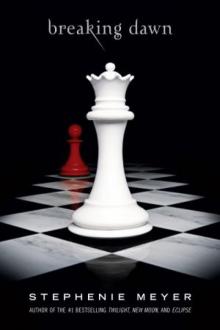 Breaking Dawn
Breaking Dawn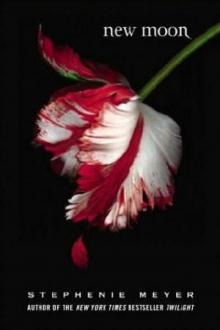 New Moon
New Moon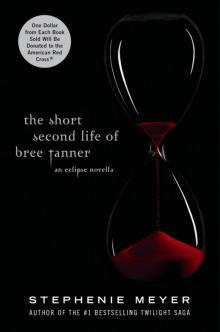 The Short Second Life of Bree Tanner
The Short Second Life of Bree Tanner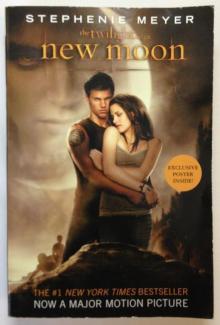 The Twilight Saga 2: New Moon
The Twilight Saga 2: New Moon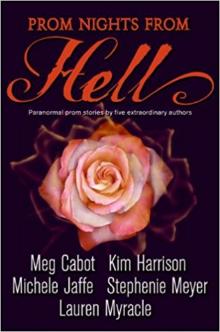 Prom Nights from Hell
Prom Nights from Hell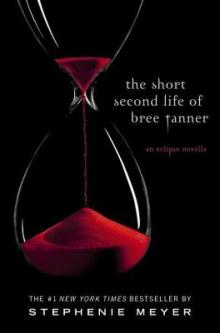 The Short Second Life of Bree Tanner: An Eclipse Novella
The Short Second Life of Bree Tanner: An Eclipse Novella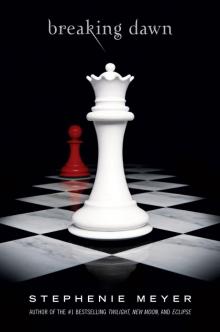 The Twilight Saga 4: Breaking Dawn
The Twilight Saga 4: Breaking Dawn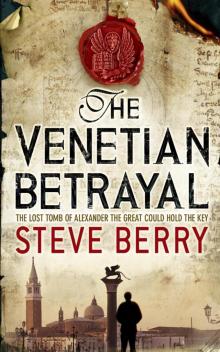 The Venetian Betrayal
The Venetian Betrayal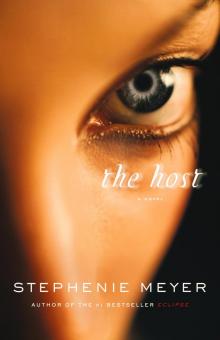 The Host
The Host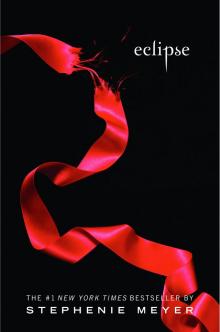 The Twilight Saga 3: Eclipse
The Twilight Saga 3: Eclipse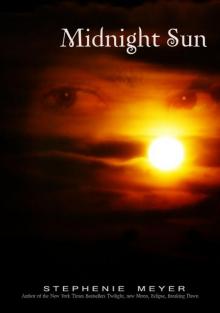 The Twilight Saga 5: Midnight Sun
The Twilight Saga 5: Midnight Sun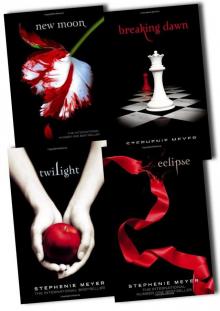 Twilight
Twilight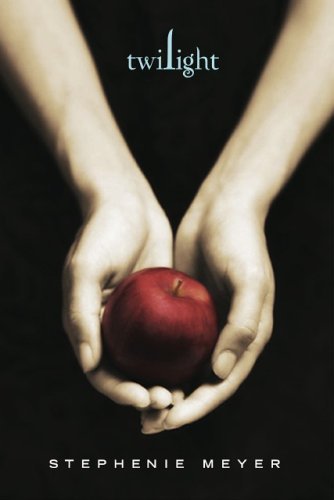 Midnight Sun
Midnight Sun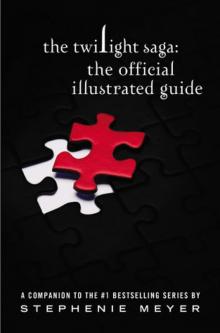 The Twilight Saga: The Official Illustrated Guide
The Twilight Saga: The Official Illustrated Guide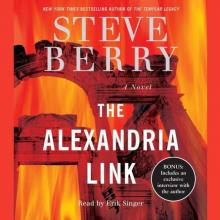 The Alexandria Link
The Alexandria Link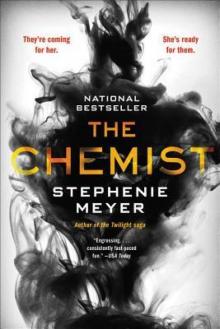 The Chemist
The Chemist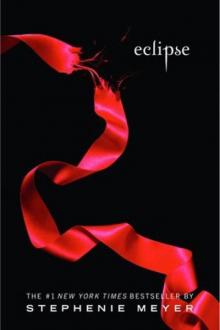 Eclipse
Eclipse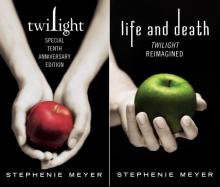 Twilight Tenth Anniversary Edition
Twilight Tenth Anniversary Edition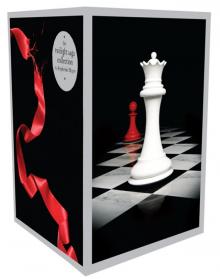 The Twilight Saga Collection
The Twilight Saga Collection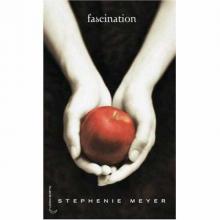 Fascination
Fascination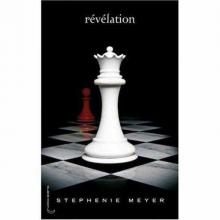 RÉVÉLATION
RÉVÉLATION TENTATION
TENTATION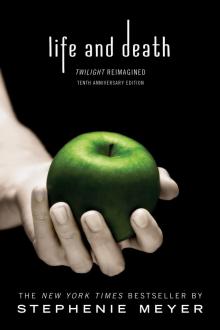 Life and Death
Life and Death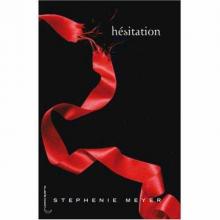 HÉSITATION
HÉSITATION